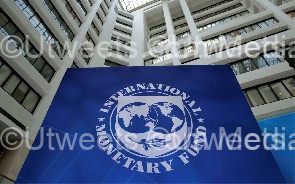2.1.3. 18+ DID YOU MISS THE TREND? SEE ALL 400 V!D£0 CLIPS, $£X T4P£ OF Equatorial Guinea Baltasar Ebang Engonga.The International Monetary Fund (IMF) has reported that the economic reforms initiated by Nigeria’s federal government have yet to yield significant positive results, 18 months after their implementation. In its latest outlook for sub-Saharan Africa, the IMF excluded Nigeria from the list of countries making reform progress, grouping it among nations struggling to meet desired economic outcomes. ...Tap To Read The Full Story Here | ..Tap To Read The Full Story Here...
According to the IMF report, the region’s average economic growth rate is projected to remain at 3.6% for 2024, but Nigeria’s growth rate of 3.19% falls below this benchmark.
Presenting the report at the Lagos Business School, IMF Deputy Director Catherine Patillo noted that while macroeconomic imbalances have improved in some countries, Nigeria was not part of the good news.
“More than two-thirds of countries have undertaken fiscal consolidation,” Patillo stated. “The median primary balance is expected to narrow by 0.7 percentage points alone in 2024, and these have included notable improvements in Côte d’Ivoire, Ghana, and Zambia, among others.”
She further emphasized that inflationary pressures have eased in many countries across the region. “On the imbalances side, median inflation has declined in many countries. And it’s already within or below the target band in about half the countries,” she explained. However, Nigeria’s inflation, which slowed in mid-2024, resumed an upward trend in September and October, currently standing at 33.8%—far above the 21% target for the year.
The IMF report also flagged Nigeria as one of the countries grappling with high inflation rates. “Inflation is still in double digits in almost one-third of countries, including Angola, Ethiopia, and Nigeria, and above target in almost half of the region, particularly where monetary policy is not anchored by exchange rate pegs,” Patillo remarked. She also observed that exchange rate stability had improved in most countries but singled out Nigeria for ongoing instability. “Foreign exchange pressures have largely abated since the end of 2023,” she noted, but Nigeria has faced severe exchange rate instability and local currency depreciation.
The report highlighted the burden of debt servicing on Nigeria’s fiscal stability. “Debt service capacity remains low by historical standards. In almost one-quarter of countries, interest payments exceed 20 percent of revenues, a threshold statistically associated with a high probability of fiscal stress,” it stated. It added: “In Angola, Ghana, Nigeria, and Zambia, this increase in interest payments alone absorbed a massive 15 percent of total revenue.”
Looking to the future, the IMF painted a mixed picture for sub-Saharan Africa but indicated that Nigeria remains on the downside due to social and political resistance to reforms. “Resource-intensive countries (RICs) continue to grow at about half the rate of the rest of the region, with oil exporters struggling the most,” the report stated. “Political and social pressures are making it increasingly challenging to implement policy adjustments and reforms.”
While highlighting successes in countries like Ghana, Zambia, and Botswana, the report grouped Nigeria with countries experiencing “adjustment fatigue.” It offered recommendations for addressing these challenges, stating: “In the face of popular frustration, there is also an opportunity to work to mobilize support for large, deep reforms, of the sort that, for instance, Ethiopia, Ghana, Kenya, and Nigeria are pursuing. Realizing this opportunity requires rethinking reform strategies, to build and maintain pro-growth coalitions among constituent leaders and the general public. This will require greater attention to communication and engagement strategies, reform design, compensatory measures, and rebuilding trust in public institutions.”
Stakeholders in Nigeria’s food sector echoed concerns about the limited impact of reforms, particularly on food security. ActionAid Nigeria (AAN) Country Director Andrew Mamedu noted that Nigeria ranks fifth globally in food insecurity and third in Africa, trailing Malawi and Liberia. “Recent assessments and current data reveal that, despite efforts, Nigeria remains one of the most food-insecure nations in 2024,” Mamedu said. He added: “Current outcomes have thus far yielded limited benefits for the average Nigerian, as food prices remain high, and many still cannot afford essential staples.”
All Farmers Association of Nigeria (AFAN) President Arc Ibrahim Kabir described agricultural reforms as necessary but criticized their slow implementation. “The reforms are desirable and in some instances necessary, but the appropriate mechanisms for less painful implementation will make them more impactful,” Kabir stated. As inflation and food insecurity persist, stakeholders and the IMF agree on the urgent need for recalibrated policies and deeper engagement to address Nigeria’s economic challenges comprehensively.…READ THE FULL STORY FROM SOURCE ↔️



